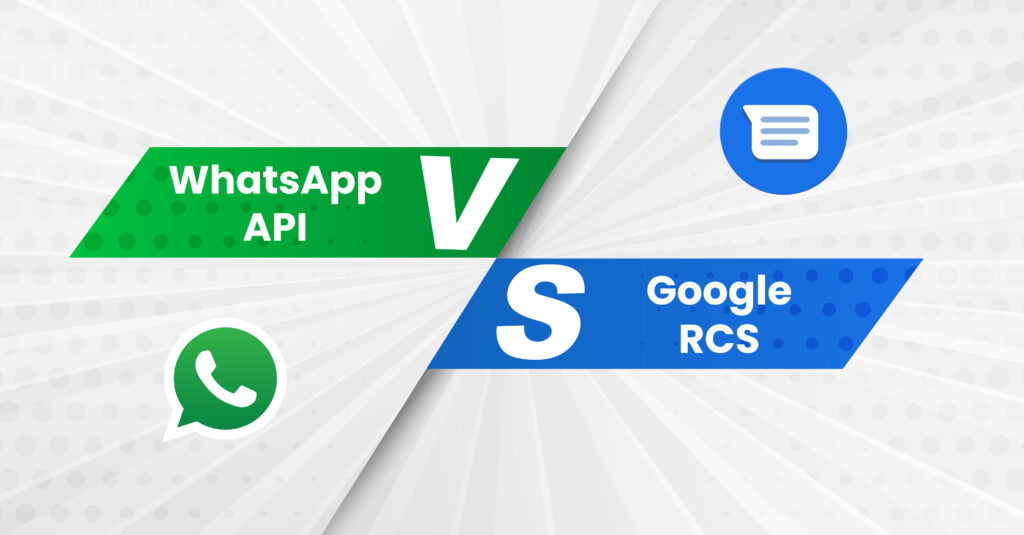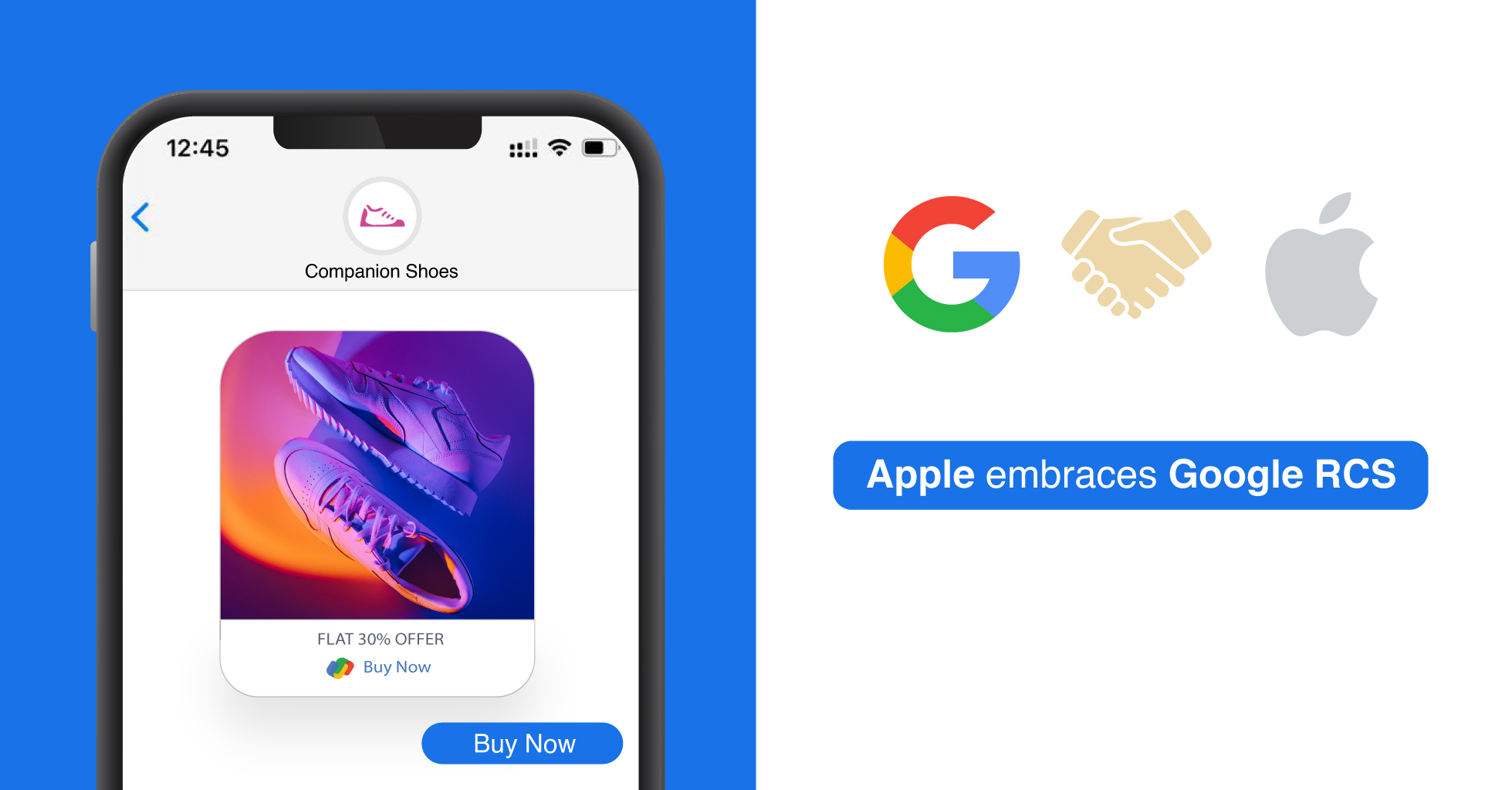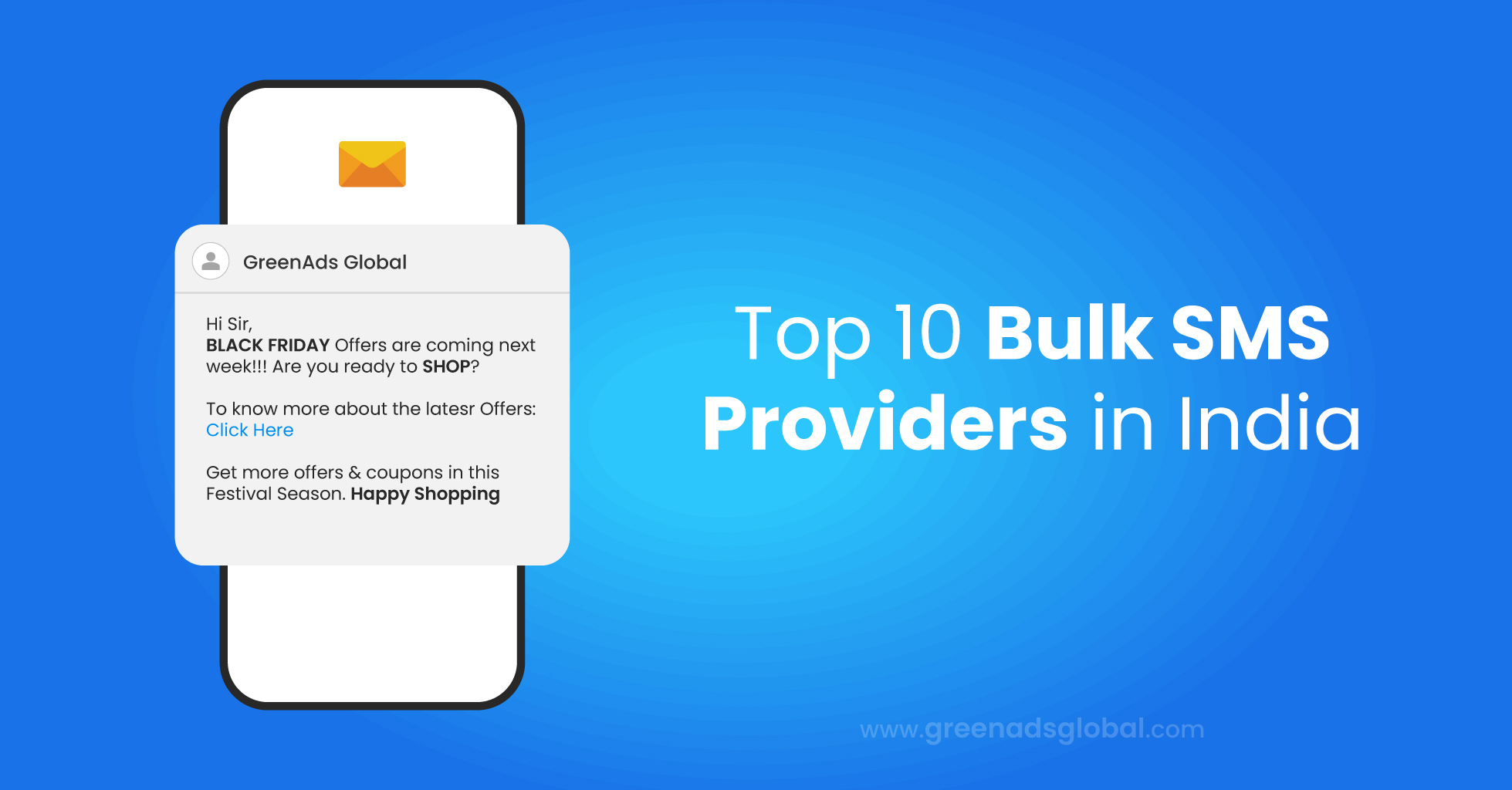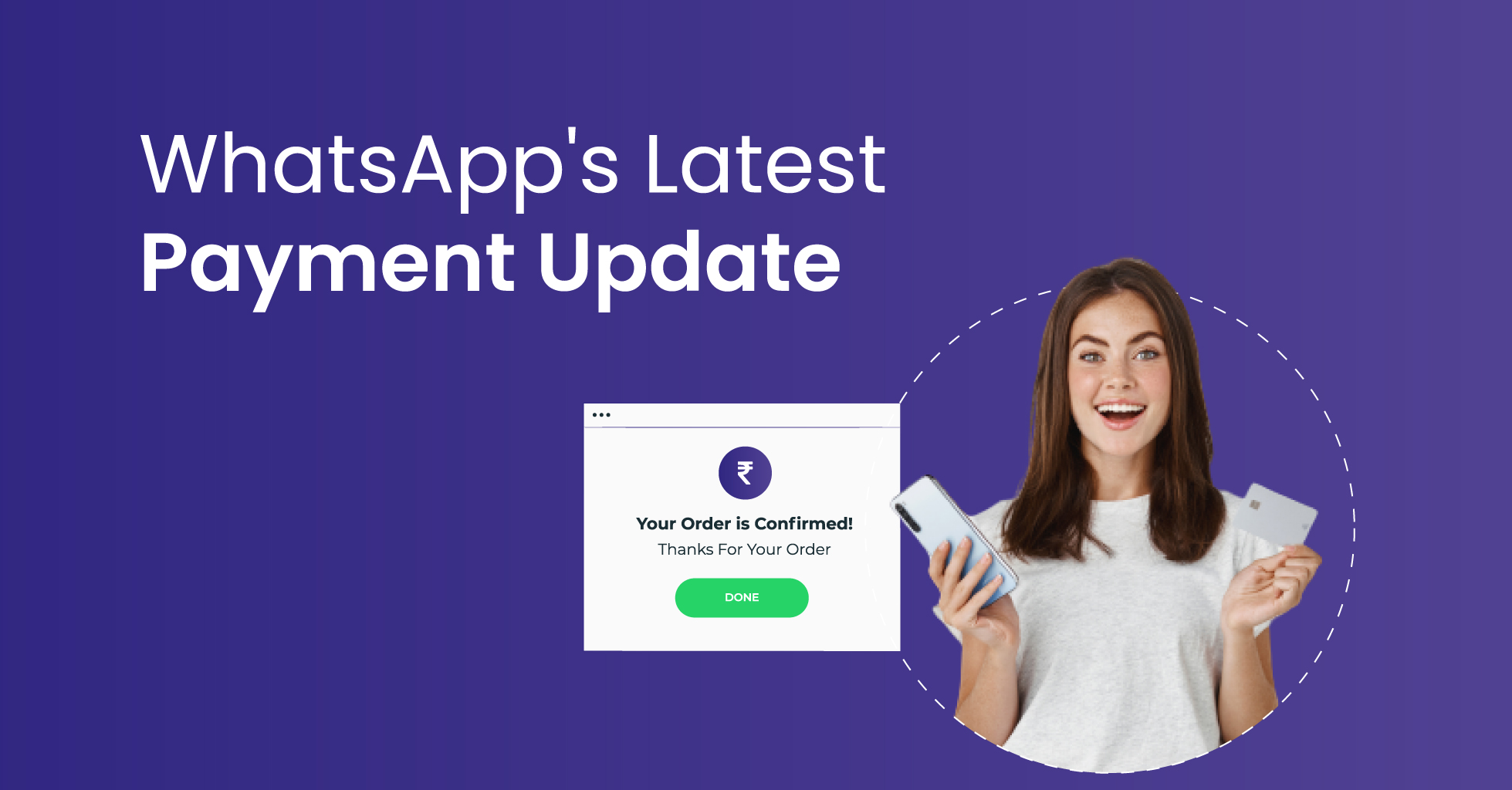Google RCS Messaging vs WhatsApp Business API: The Future of Conversational Marketing
Conversational marketing is a rapidly growing trend, and businesses are looking for new ways to engage with their customers. Two of the most popular platforms for conversational marketing are Google RCS messaging and WhatsApp Business API.
Google RCS messaging is a new messaging standard that is still being developed. It is based on SMS and MMS, but it offers a number of additional features, such as rich media messages, typing indicators, read receipts, delivery reports, group chats, location sharing, and rich cards.
WhatsApp Business API is a third-party API that businesses can use to send and receive messages on WhatsApp. WhatsApp is a popular messaging app with over 2 billion users worldwide. The WhatsApp Business API allows businesses to send and receive messages, create and manage groups, send broadcast messages, view analytics, and integrate with other business systems.
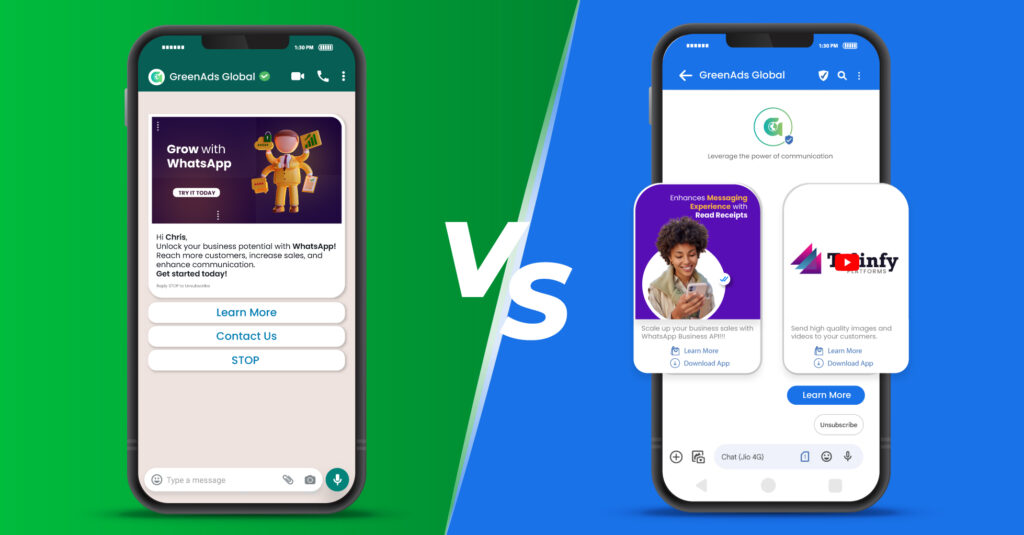
Are we expecting a war between the two most popular conversational marketing platforms?
In a recent meeting Meta CEO Mark Zuckerberg said that business messaging will be a major driver of revenue growth for the company in the future. He said that Meta is “very early in monetizing” WhatsApp and Messenger, but that he believes there is “a lot of potential” in these businesses. As of June 8, 2023, Apple has not yet adopted Google’s RCS services but Google has been pushing Apple to adopt RCS for well over a year now. So sooner or later we can expect a collaboration between the two legends. So the question is, will this bring a war between the two most popular conversational marketing platforms?
It is possible that we could see a war between WhatsApp Business API and Google RCS in the future. Both platforms offer similar features, such as the ability to send and receive messages, photos, and videos, as well as the ability to create groups and chat with multiple people. However, there are some key differences between the two platforms.
WhatsApp is a closed platform, meaning that it is only available on Android and iOS devices. RCS, on the other hand, is an open platform, meaning that it can be used on any device that supports it. This could give RCS an advantage over WhatsApp in terms of reach. Additionally, RCS is backed by Google, which has a large user base and a lot of resources. This could help RCS to gain market share and compete with WhatsApp.
However, WhatsApp has a number of advantages of its own. It is one of the most popular messaging apps in the world, with over 2 billion users. It is also very easy to use and has a number of features that businesses find valuable, such as the ability to send bulk messages and track customer engagement.
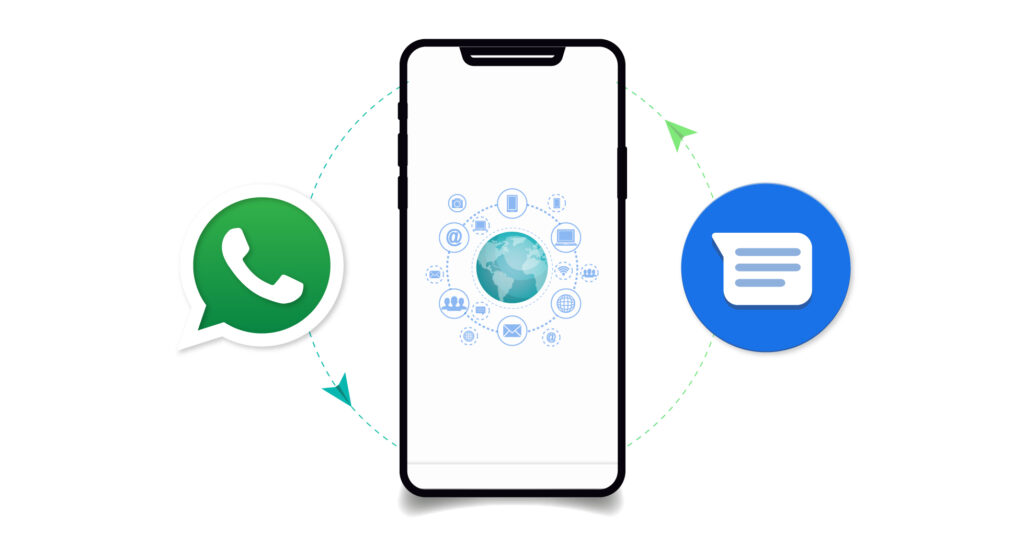
Let’s see some key features of WhatsApp Business API and Google RCS
WhatsApp Business API
WhatsApp Business API is a paid platform that allows businesses to send and receive messages from customers through WhatsApp. It offers a wide range of features, including:
- Two-way messaging
- File sharing
- Location sharing
- Chatbots
- Business profiles
WhatsApp is one of the most popular messaging apps in the world, with over 2 billion active users. This gives businesses a huge potential audience to reach with WhatsApp Business API. However, the platform is also expensive, and it can be difficult to set up and use.
Google RCS
Google RCS is a free platform that allows businesses to send and receive messages from customers through their Android devices. It is still in its early stages of development, but it offers a number of features that are similar to WhatsApp Business API, including:
- Two-way messaging
- File sharing
- Location sharing
- Chatbots
- Business profiles
Google RCS is not as widely used as WhatsApp, but it is growing rapidly. It is also free to use, which makes it a more attractive option for businesses on a budget.
So, which platform is better for conversational marketing?
It depends on your specific needs. If you are looking for a platform that offers rich media messages, typing indicators, read receipts, delivery reports, group chats, and location sharing, then Google RCS messaging may be a good option for you. If you are looking for a platform that is widely available and offers end-to-end encryption, then WhatsApp Business API may be a better option for you.
Ultimately, the best platform for you will depend on your specific needs and requirements. However, it is clear that both Google RCS messaging and WhatsApp Business API are powerful tools that can be used to engage with customers in a more personal and meaningful way.
Therefore, what can be inferred from this?
The future of conversational marketing is bright, and both Google RCS messaging and WhatsApp Business API are likely to play a role in that future.
It is too early to say who will win the war between WhatsApp Business API and Google RCS. Both platforms have their own strengths and weaknesses. It is likely that the market will eventually settle on one platform as the dominant player. However, it is also possible that both platforms will coexist and businesses will use both platforms to reach different audiences.
However, it is impossible to say for sure which platform will ultimately be more successful. The market is constantly evolving, and new platforms are emerging all the time. As a result, it is important to stay up-to-date on the latest trends and developments in conversational marketing so that you can make the best decisions for your business.
Here are some additional tips for using conversational marketing to your advantage:
- Personalize your messages: The more personalized your messages are, the more likely customers are to engage with them.
- Use rich media: Rich media messages, such as photos, videos, and GIFs, can help to capture attention and keep customers engaged.
- Make it easy for customers to respond: Make sure that your conversational marketing platform is easy for customers to use and that it offers a variety of ways for them to respond, such as text, voice, and video.
- Track your results: It is important to track the results of your conversational marketing campaigns so that you can see what is working and what is not. This will help you to improve your campaigns over time and get better results.
We can’t predict the future of conversational marketing as this is undergoing continuous inventions. But one thing is for sure, businesses that embrace this new form of marketing will be at an advantage. Chat or Contact us for more details…
